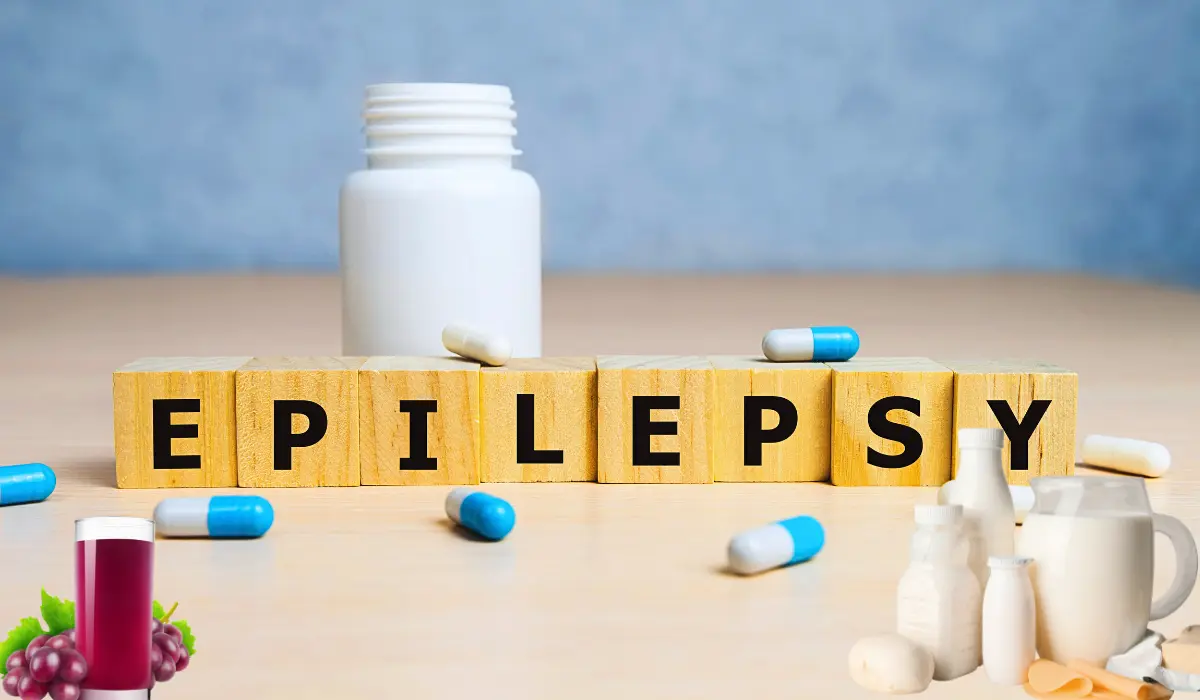If you’re living with epilepsy, you know that managing your condition involves more than just taking medication like lamotrigine. Your lifestyle choices, including your diet, can play a big role in keeping seizures under control. In this guide, we’ll dive into the foods you might want to avoid if you’re taking lamotrigine and how making smart dietary choices can support your overall health and well-being.
What is Epilepsy?
Before we delve into the dietary aspects, let’s take a moment to understand what epilepsy is. Epilepsy is a neurological disorder characterized by recurrent, unprovoked seizures. These seizures occur due to abnormal electrical activity in the brain.
Epilepsy can affect people of all ages, and the severity and frequency of seizures can vary from person to person.

Common symptoms of epilepsy
- Temporary confusion
- Uncontrollable jerking movements of the arms and legs
- Loss of consciousness or awareness
- Psychic symptoms such as fear, anxiety, or déjà vu
Epilepsy is typically diagnosed through a combination of medical history, neurological exams, and diagnostic tests like EEG (electroencephalogram) and brain imaging scans. Treatment often involves anti-epileptic medications, such as lamotrigine, along with lifestyle modifications and sometimes surgery.
How Diet Affects Epilepsy Management?
Let’s start by understanding how the foods you eat can impact your epilepsy management. While everyone’s dietary needs are different, maintaining a balanced, nutritious diet is key. Some foods may even trigger seizures or make your medication less effective. That’s why it’s crucial to be mindful of what you put on your plate.
Common questions about diet and epilepsy
Foods To Avoid When Taking Lamotrigine
If you’re taking lamotrigine to control your seizures, there are a few foods you’ll want to be cautious about. Some foods can interact with your medication, affecting how well it works or causing unwanted side effects. Here are a few foods to keep an eye on:
1. Grapefruit and grapefruit juice
Grapefruit contains compounds that can interfere with how your body processes lamotrigine. This can lead to higher levels of the medication in your bloodstream, increasing the risk of side effects. It’s best to avoid grapefruit and grapefruit juice while taking lamotrigine.
2. High-fat dairy products
Foods like whole milk, cheese, and butter are high in fat, which can slow down the absorption of lamotrigine. This means it may take longer for the medication to start working or it may not work as well. Opt for low-fat or fat-free dairy instead.
3. Alcohol
Drinking alcohol while taking lamotrigine can make you more drowsy and affect your judgment. It can also increase the risk of seizures. It’s best to avoid alcohol or talk to your doctor about safe limits.
Remember, everyone’s body is different, so it’s important to talk to your healthcare provider before making big changes to your diet. We can assist you in determining the most effective solution for your needs.
Weight Loss And Epilepsy Management
Managing your weight is important for overall health, and it can also impact your epilepsy. Some people find that lamotrigine affects their weight and appetite. If you’re trying to lose weight while taking lamotrigine, here are a few tips:
- Practice portion control: Eat smaller, more frequent meals throughout the day.
- Get moving: Regular exercise can help you maintain a healthy weight and reduce stress.
- Work with a dietitian: A registered dietitian can help you create a personalized meal plan that fits your needs and preferences.
Healthy Food Choices for Epilepsy
Now that we’ve covered foods to be cautious about, let’s talk about what you can eat. A diet rich in nutrients can support brain health and overall well-being. Here are some foods to include in your meals:
- Fruits and vegetables: Aim for a variety of colorful produce to get a range of vitamins and minerals.
- Whole grains: Choose whole-grain bread, pasta, and cereals for fiber and nutrients.
- Lean proteins: Opt for proteins like fish, poultry, and legumes.
- Low-fat dairy: Stick to low-fat or fat-free milk, yogurt, and cheese.
Don’t be afraid to get creative in the kitchen! Experiment with different recipes and flavors to keep your meals interesting and enjoyable.
Conclusion
Living with epilepsy means being mindful of your lifestyle choices, including your diet. By avoiding foods that may interact with lamotrigine and focusing on nutrient-rich options, you can support your overall health and potentially reduce seizures.
Remember, everyone’s needs are different, so work with your healthcare team to find the best plan for you. With a little planning and some delicious recipes, managing epilepsy through diet can be a tasty and rewarding journey.
FAQ
Yes, you can still enjoy your favorite foods in moderation. Focus on creating balanced meals that include a variety of nutrient-rich foods. If you’re unsure about a particular food, talk to your doctor or a registered dietitian.
Some people with epilepsy find success with diets like the ketogenic diet or the modified Atkins diet. However, these diets require medical supervision and may not be suitable for everyone. Talk to your healthcare team to determine if a specific diet could benefit you.
For some people, skipping meals or going too long without eating can trigger seizures. Try to eat regular, balanced meals throughout the day to keep your blood sugar stable. If you’re prone to seizures, consider carrying snacks with you in case of emergencies.
Caffeine can affect people with epilepsy differently. Some people find that consuming too much caffeine can increase their risk of seizures, while others may not notice any impact. Pay attention to how caffeine affects you personally and talk to your doctor if you have concerns.





